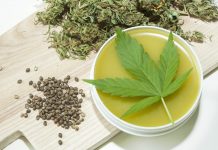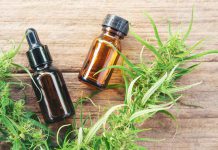Serpent River – October 17th, 2019 marked the one-year anniversary of the legalization of cannabis in Canada. This is an appropriate day to launch the third edition of Growth and Prosperity: Indigenous Hemp and Cannabis Magazine. The feature story is on the work being done with the federal government to include First Nations in the mainstream cannabis industry from seed to sale.
What we have learned so far is Indigenous Peoples were not included by the federal government– and were not adequately informed — about the pros and cons of this new industry. What we have learned so far is that the federal government is now willing to work with our Peoples on all fronts – from health and safety education and supports to ensuring inclusion in the mainstream industry though a harmonized framework approach.
One year after legalization, at least 80 per cent of the cannabis consumed in Canada is from the black market. There is still much misinformation about cannabis as a disruptive gateway drug to serious addiction. There is misinformation that a First Nation community that gets involved in growing or selling cannabis will be a target for organized crime and will endanger the lives of their children.
The reality is that alcohol and tobacco have proven to be far more dangerous when overconsumed. Organized crime is far more involved in the illicit alcohol and tobacco trade in our communities. The answer to this cannabis misinformation is education.
Our leadership, and our citizens, must take the time to consider whether First Nation participation in the cannabis industry is something that they want to pursue as a means of long-term economic opportunity. At the same time, those communities with high rates of drug and alcohol abuse may want to examine medicinal cannabis as a safer means of recovery from addiction.
I am inspired by Dr. Shelley Turner’s medical clinic – Ekosi Health. “Ekosi” is Cree word that means “this is good, this is the way forward.” She has become an expert on the many benefits of medicinal cannabis. Her practice focuses on education, data, and science – knowledge and safe access to cannabis.
What we do know about cannabis is that it’s a natural plant that as been consumed for thousands of years. It’s only been within the past several decades that science has separated different strains that have different effects upon the human body. Cannabis with THC is a mind-altering substance. Cannabis with CBD is the medicinal, healing, and calming substance.
The simple plan for those communities who want to explore both the economic and well-being potential of cannabis is to first concentrate on medicinal cannabis. For example, Seven Leaf in Akwesasne, is a Health Canada licenced producer of medicinal cannabis. They now employ over 50 local Mohawk residents.
Not only is Seven Leaf contributing to the economic well-being of those 50 families, they are producing a safe product that has the power to heal. If your grandmother is in severe pain with arthritis, or if your dog has anxiety when there’s a thunderstorm, why not use medicinal cannabis?
Cannabis has the power to heal our Peoples and it has the power to create wealth for our Peoples.
This is good, this is the way forward.







